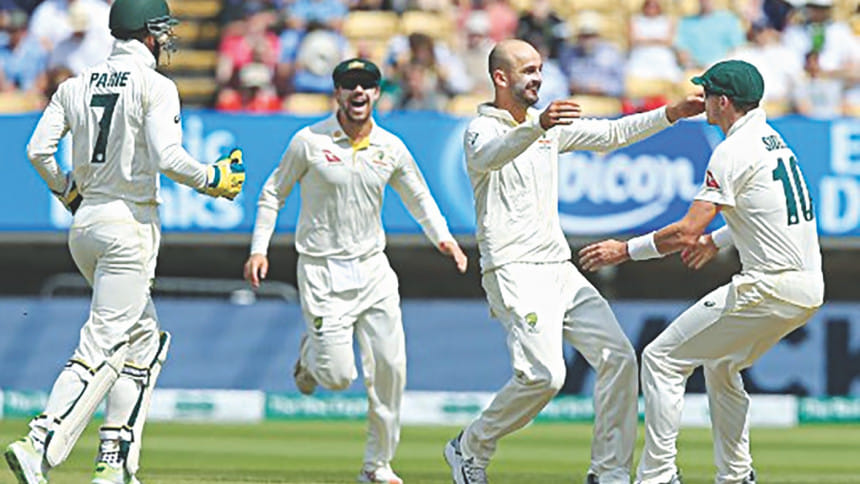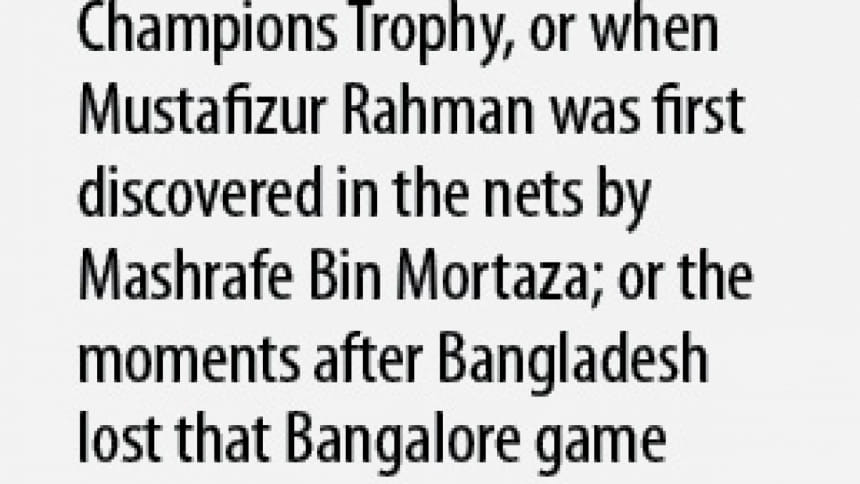The Test: A window into Australia’s path to self-discovery

How a high-profile sports team redeemed its reputation and renewed their supporters' faith is the story of Amazon Prime's "The Test", an inside look into the Australia cricket team's journey from Cape Town 2018 to the 2019 Ashes.
The admission of Cameron Bancroft and senior players David Warner and Steve Smith that they were involved in the plan to roughen up one side of the ball with a foreign object made worldwide headlines and led to suspensions that had a lasting impact. Coach Darren Lehmann left his job tearfully, and so did some Cricket Australia officials. While the public breakdowns of Smith, Warner and Bancroft was gut wrenching, there was a helpful dollop of schadenfreude for those who long suffered at the hands of Australia's on-field behaviour or, as Steve Waugh liked to call sledging, their "mental disintegration".
The Amazon Prime documentary begins with the appointment of Justin Langer, one of Australia's heroes from their golden era, as the head coach. It was seen as a clean break from Cape Town and it quickly becomes clear that Langer is not just the coach, but also a guru who is eager to take this team through a cultural revolution.
How Australia bounced back from several on-field setbacks for 12 months -- getting thrashed 5-0 by England in the summer of 2018, including the world record score of 481 in Nottingham, Test series losses to Pakistan and India, and not going past the World Cup semifinals -- before claiming the 2019 Ashes, forms the backdrop of the documentary.
Langer has a major say, although Tim Paine, the unlikely Test captain who took over in South Africa immediately after Smith lost the role in Sandpapergate, is seen as a calming influence on the team. He lacks the depth as a batsman but makes up with his leadership and wicketkeeping. Smith and Warner joins in the nick of time, helping them through the World Cup and then retaining the Ashes.
It helps that the five Tests provided unbelievable drama, starting from the introduction of Jofra Archer in the second Test, to him hitting Smith, who keeps his sublime form before and after the concussion, as well as little plot twists and turns throughout the six weeks. Australia retaining the Ashes perhaps helped the documentary go on air, because let's face it, entertainment is of no value without a happy ending.
The fly-on-the-wall nature of the 10-episode series really steals the show. From Nathan Lyon leading the winning song "Under the Southern Cross", coach Langer picking up the bottles after he kicks a trash-can following Lyon's missed run out in the dying moments in Headingley, to seeing the detailed planning that goes into their pace attack, batsmen and fielders.

The clincher was when Langer made the whole team sit through the Ben Stokes-Jack Leach 10th wicket partnership in Headingley, with commentary, to make sure another such instance does not take place. It was a masterstroke, and so was his admonishment of Paine for not bringing up the fielders during one over. Paine said he felt bad to be given a sermon in front of his teammates, but the lesson was learned almost instantly.
Some of the bromances that developed was also given some air-time, including Adam Zampa's 'love café' with Marcus Stoinis, as well as Marnus Labuschagne's obsession with Smith. Among the most endearing part of the 10 episodes was Mitchell Marsh wanting to be the best team man during the Ashes, and how his habit of walking to get coffee every morning eventually drew the whole team with him. Team sports is sometimes only about the camaraderie, forget the results.
There was little mention of how Smith and Warner coped with their year in banishment, or what the former thought of Paine and Aaron Finch as captain. There was also little commentary from Australia's opponents, but since the message is well and truly controlled by Cricket Australia, it was expecting too much from an already wonderful concept.
Now, how would you like to see one of your own cricket team? A similar concept in Bangladesh seems unlikely given how the BCB operates its media wing, or how it generally views public consumption of its properties. But, it doesn't hurt to briefly imagine a documentary about the wild ride of this cricket team and cricket board.
Imagine what it was like when Shakib Al Hasan and Mahmudullah went to bat against New Zealand in the Champions Trophy, or when Mustafizur Rahman was first discovered in the nets by Mashrafe Bin Mortaza; or the moments after Bangladesh lost that Bangalore game against India in 2016. Or, every time BCB President Nazmul Hassan intervened and interfered.
Australia have led the way in many aspects in world cricket since the mid-1990s, and this could give other boards a concept to work on. But the documentary made one sit up and realise that at the end of the day, it is just a game of cricket they are playing, but it is at the highest level of scrutiny, expectation and exposure.
Mohammad Isam is ESPNCricinfo's Bangladesh correspondent and a former sports reporter at The Daily Star.

 For all latest news, follow The Daily Star's Google News channel.
For all latest news, follow The Daily Star's Google News channel. 



Comments